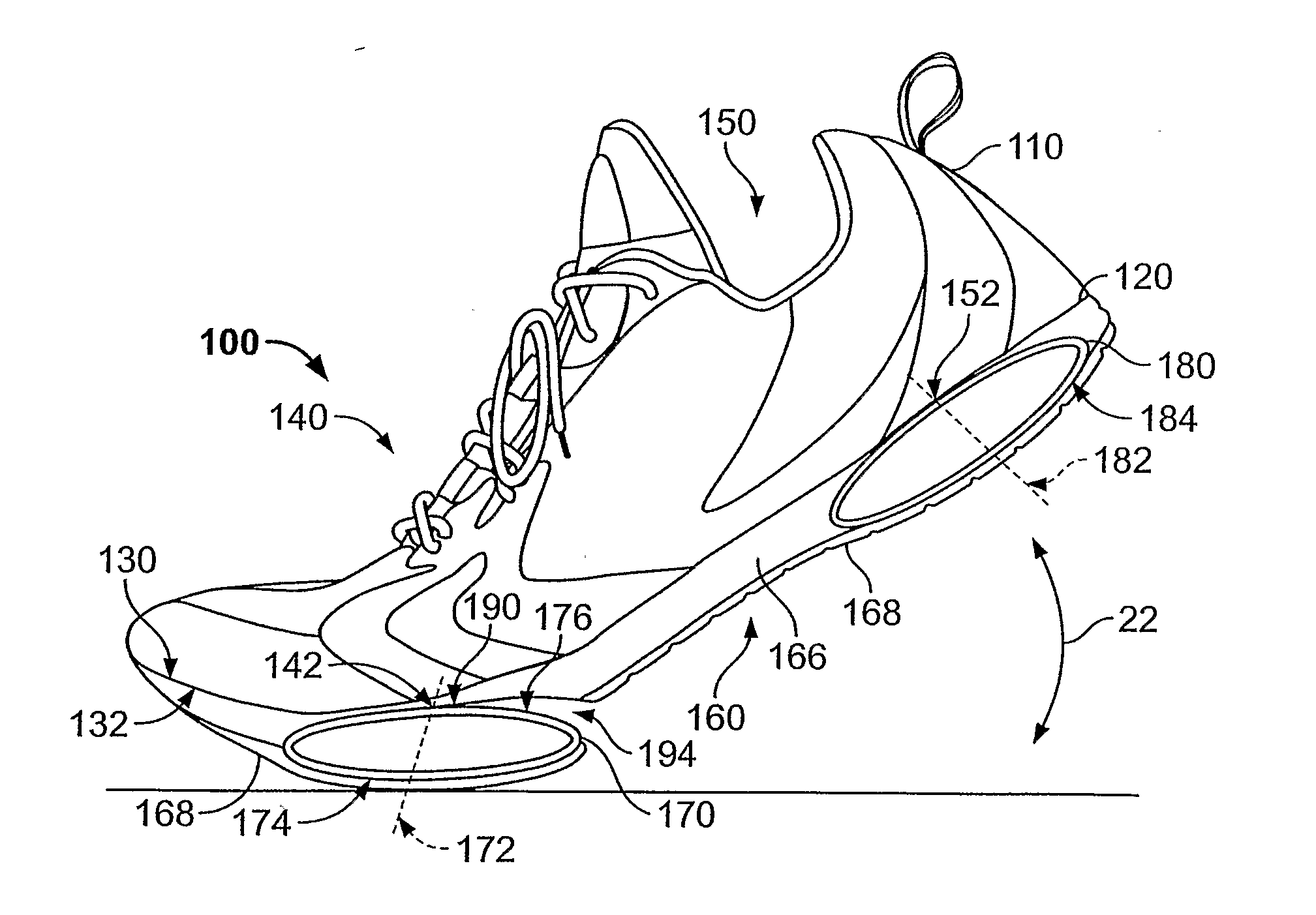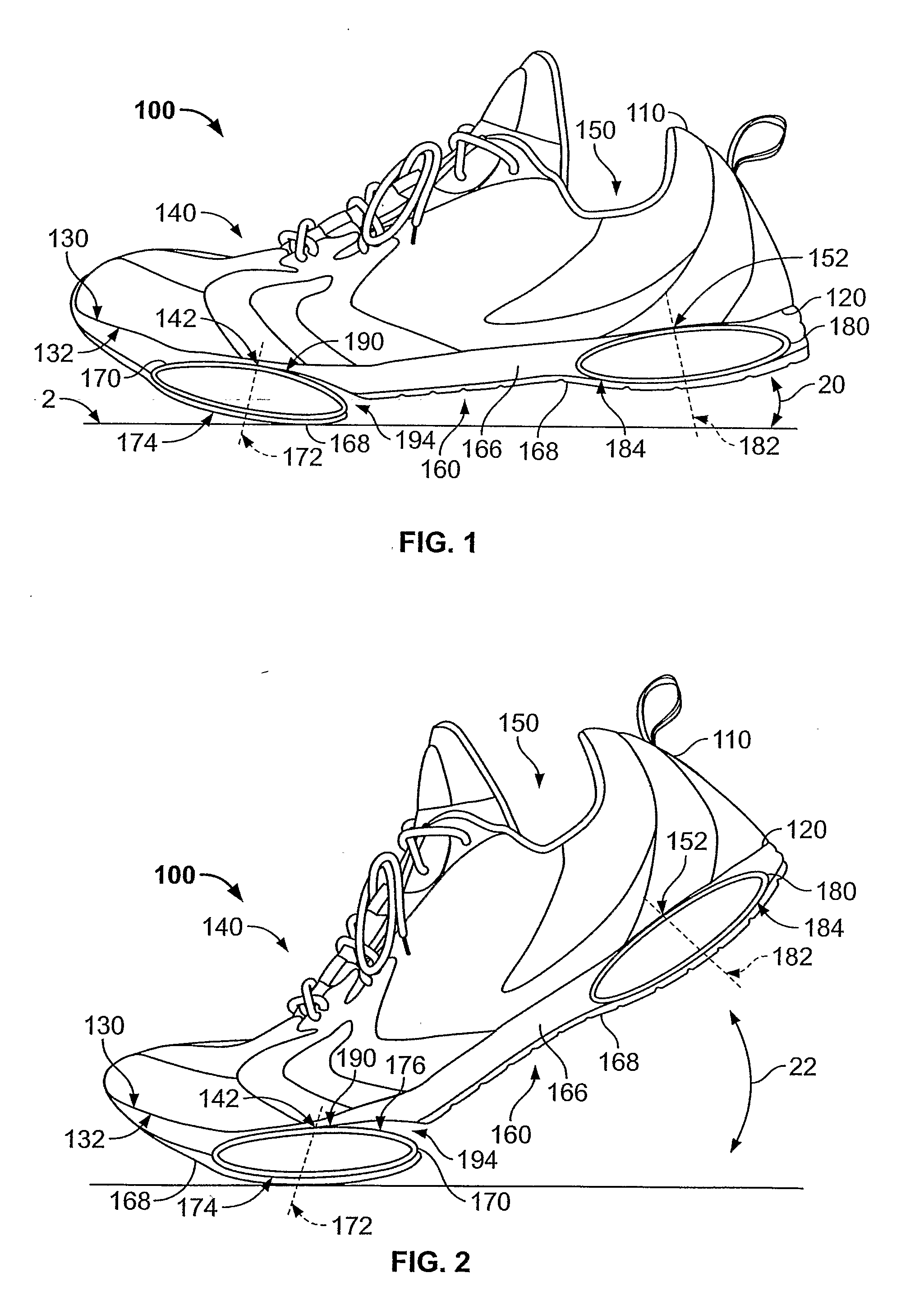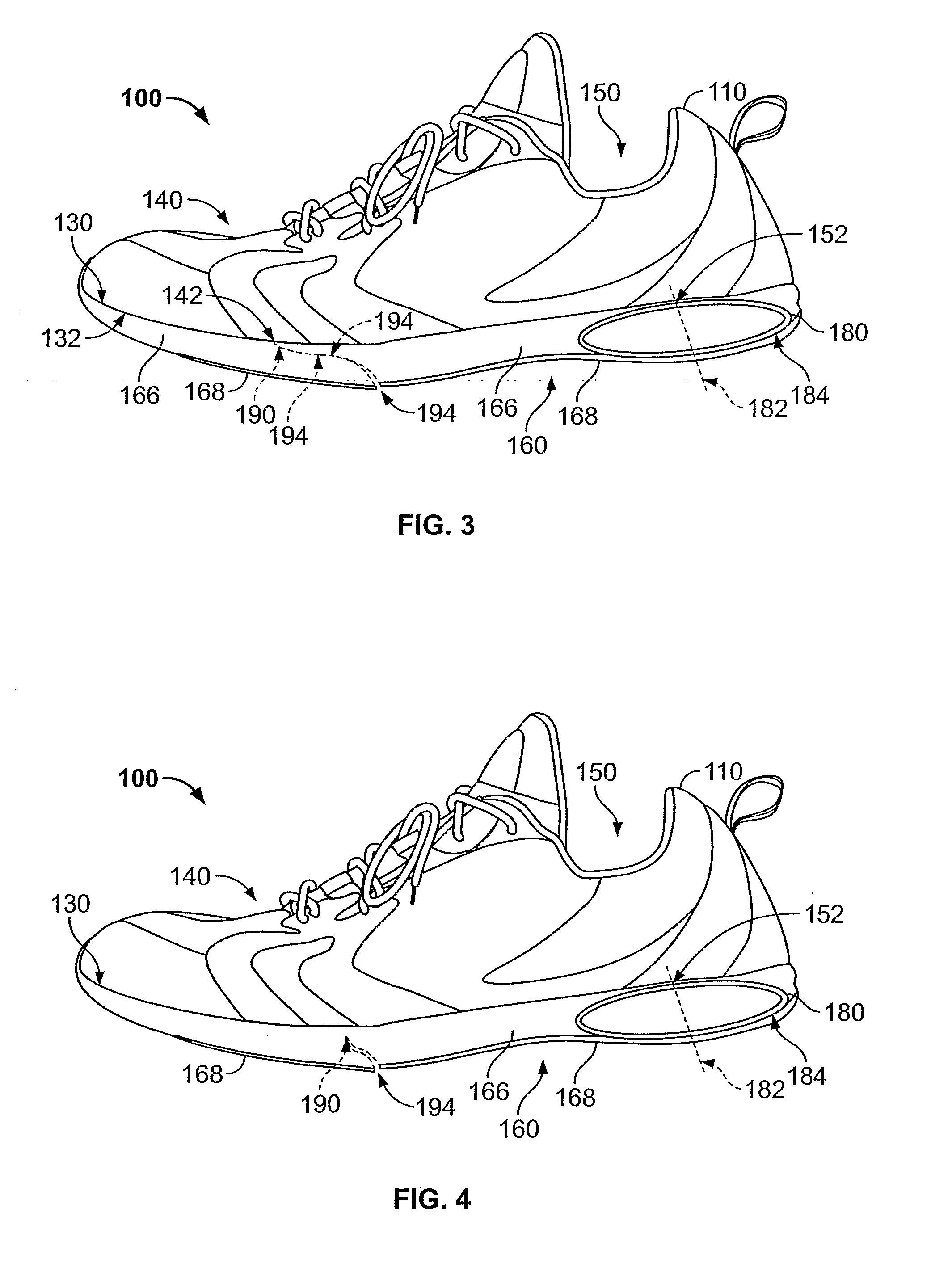Shoe apparatus with improved efficiency
a technology of efficiency and shoe, applied in the direction of shoes, top-pieces, heels, etc., can solve the problems of running fatigue or injury, fatigue to the wearer, fatigue to at least, etc., and achieve the effect of reducing the damage of the suspension element by overflexing
- Summary
- Abstract
- Description
- Claims
- Application Information
AI Technical Summary
Benefits of technology
Problems solved by technology
Method used
Image
Examples
Embodiment Construction
[0084] While this invention is susceptible of embodiment in many different forms, there are shown in the drawings and herein described in detail preferred embodiments with the understanding that the present disclosure is to be considered an exemplification of the principles of the invention and is not intended to limit the broad aspect of the invention to the embodiments illustrated.
[0085] The composite suspension elements of the present invention are not “springs” in any simplistic sense. Their function is to guide and decelerate the wearer in a linear fashion, in order to provide a low or zero change in rate of loading throughout the stride, as will be discussed further below. The suspension elements may be a single piece composite or made in two halves, upper and lower, which may provide more linearity and effective suspension travel at a slight increase in element weight. For ride quality and motion control purposes, the suspension elements may feature small cutouts, ridges, pr...
PUM
| Property | Measurement | Unit |
|---|---|---|
| radius | aaaaa | aaaaa |
| thickness | aaaaa | aaaaa |
| radius | aaaaa | aaaaa |
Abstract
Description
Claims
Application Information
 Login to View More
Login to View More - R&D
- Intellectual Property
- Life Sciences
- Materials
- Tech Scout
- Unparalleled Data Quality
- Higher Quality Content
- 60% Fewer Hallucinations
Browse by: Latest US Patents, China's latest patents, Technical Efficacy Thesaurus, Application Domain, Technology Topic, Popular Technical Reports.
© 2025 PatSnap. All rights reserved.Legal|Privacy policy|Modern Slavery Act Transparency Statement|Sitemap|About US| Contact US: help@patsnap.com



